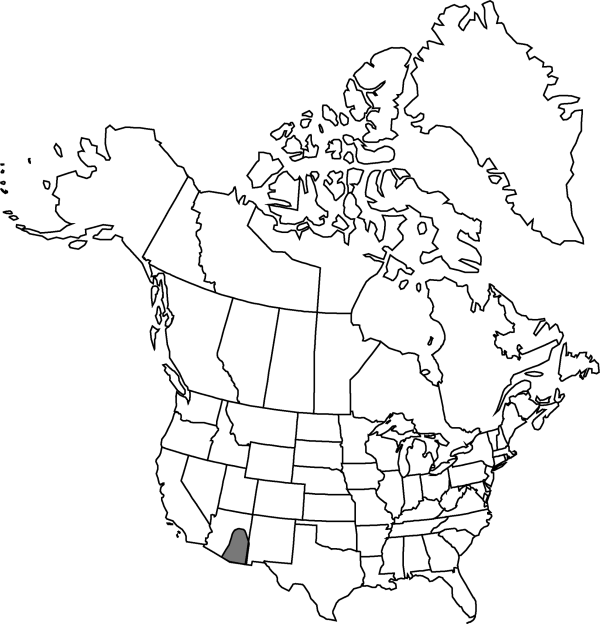Difference between revisions of "Gomphrena sonorae"
in W. H. Emory, Rep. U.S. Mex. Bound. 2(1): 181. 1859.
Common names: Sonoran globe-amaranth
FNA>Volume Importer |
imported>Volume Importer |
||
| (One intermediate revision by the same user not shown) | |||
| Line 1: | Line 1: | ||
{{Treatment/ID | {{Treatment/ID | ||
|accepted_name=Gomphrena sonorae | |accepted_name=Gomphrena sonorae | ||
| − | |accepted_authority=Torrey | + | |accepted_authority=Torrey |
|publications={{Treatment/Publication | |publications={{Treatment/Publication | ||
|title=in W. H. Emory, Rep. U.S. Mex. Bound. | |title=in W. H. Emory, Rep. U.S. Mex. Bound. | ||
| Line 32: | Line 32: | ||
-->{{#Taxon: | -->{{#Taxon: | ||
name=Gomphrena sonorae | name=Gomphrena sonorae | ||
| − | |authority=Torrey | + | |authority=Torrey |
|rank=species | |rank=species | ||
|parent rank=genus | |parent rank=genus | ||
| Line 46: | Line 46: | ||
|publication year=1859 | |publication year=1859 | ||
|special status= | |special status= | ||
| − | |source xml=https:// | + | |source xml=https://bitbucket.org/aafc-mbb/fna-data-curation/src/2e0870ddd59836b60bcf96646a41e87ea5a5943a/coarse_grained_fna_xml/V4/V4_892.xml |
|genus=Gomphrena | |genus=Gomphrena | ||
|species=Gomphrena sonorae | |species=Gomphrena sonorae | ||
Latest revision as of 22:01, 5 November 2020
Plants perennial or annual, not cespitose, 1.5–6 dm; roots primary, woody or fibrous. Stems erect or ascending, sparsely pilose, glabrate. Leaves sessile or petiolate; petiole to 0.9 cm; blade green, elliptic, oblong, oblanceolate, or linear, 3–10 × 0.5–1.2 cm, sparsely pilose. Inflorescences: heads white, globose, 0.8–1.3 mm diam., subtended by 2 leaves; bractlets white, not crested. Flowers: tube densely lanose proximally; perianth lobes white, oblong, 3.5–4 mm, hyaline, apex rounded to emarginate. Utricles ovoid, 2.2 mm, apex acute. Seeds 1–1.5 mm.
Phenology: Flowering late summer–winter.
Habitat: Sandy slopes, open woodlands, scrub, dry streambeds
Elevation: 900-1800 m
Distribution

Ariz., N.Mex., Mexico.
Discussion
Selected References
None.
Lower Taxa
None.